 IoT, better known as “The Internet of Things,” is a term given to an emerging technology that uses cloud connected devices to gather data from sensors which can be used for further analysis. Both organizations and individuals can use this data to make intelligent decisions which could lead to cost saving measures or new profit verticals. IoT can be used in just about anything: buildings, automobiles, and even entire cities are being outfitted with IoT devices.
IoT, better known as “The Internet of Things,” is a term given to an emerging technology that uses cloud connected devices to gather data from sensors which can be used for further analysis. Both organizations and individuals can use this data to make intelligent decisions which could lead to cost saving measures or new profit verticals. IoT can be used in just about anything: buildings, automobiles, and even entire cities are being outfitted with IoT devices.
The Internet of Things has become somewhat of contentious topic in the IT world. While many are excited at the prospect of a world controlled by the Internet of Things, others feel that IoT could be an over-hyped technology. Some IT professionals are skeptical of Cisco’s prediction of there being 50 billion IoT devices in use by 2020. Could IoT enthusiasts be overly optimistic in their predictions?
IoT: Is It All Hype?
Many tech enthusiasts argue that the Internet of Things is an over-hyped technology. Those who have this opinion may not be aware of the recent advancements in IoT infrastructure.
IoT can potentially help industries, enterprises, and consumers systematically make better decisions based on data generated from IoT sensors. While IoT hasn’t caught on yet, many forget that IoT is still in its early stages of product development.
In fact, IoT appears to be one of the main components of the impending Smart Device Revolution. Current IoT deployments span many key markets such as wearables, security monitoring, home environment control, automatic vehicles, and even healthcare diagnostics.
Devices capable of communicating over cellular networks using SIM cards are available in these markets. An even more feasible method of communication for some in-house IoT devices is the use of local wireless protocols such as WiFi or Bluetooth.
These recognizable developments provide evidence to contribute to the fact that IoT adoption is making significant progress, and the 50 billion IoT device prediction by Cisco may not be as far-fetched as it seems on paper.
Interoperability in IoT
It is important to take a step back and consider what the Internet of Things is before discussing it. The roots of this technology lie in embedded computing, and that means that even the simplest of devices require processing capability. However, that’s not all what IoT is all about.
IoT is more than just embedded processing combined with wireless IP connectivity. If it were just that, then it would merely create isolated islands of control or automation within different vertically integrated sectors (like home security).
IoT’s true value can be realized when consumers and enterprises connect different devices to one another that work autonomously. Even though interoperability is not widely happening on a global scale, it is happening nonetheless. The major hurdle for IoT is the lack of standards in these areas. Let’s take a look at notable enterprises that have achieved IoT interoperability:
- Freescale, a US embedded systems developer, recently developed a telehealth gateway that is available to all third-party app providers for coordination and data collection from every diagnostic device in a home.
- British Gas, an energy & utilities company, plans to offer IoT technology to help consumers monitor and control the efficiency of home appliances.
- Google’s Nest launched a developer program that could link intelligent thermostats to other IoT connected devices in your smart home.
IoT is rapidly embracing smart energy, home automation, consumer electronics, and security monitoring. These advancements help bridge the gap in making consumer IoT a real possibility in the coming years.
Examining CompTIA’s Survey on IoT Deployments
An online survey was conducted by CompTIA back in 2014 when the phrase “Internet of Things” first became popular. Nearly 300 IT professionals in the USA took part in this survey which reveals the general thoughts and opinions of IT professionals on IoT. The survey queried small-to-medium sized businesses (SMB) as well as Fortune 500 companies. CompTIA’s report concluded:
“Overall, IT industry executives are nearly evenly split on their view of IoT hype. Specifically, 51% of respondents believe IoT opportunities justify the hoopla, while 48% see more hype than substance at this point in time.”
Surprisingly enough, the survey also found that only 8% of IT executives indicated that they had explored the potential of IoT products in their enterprise. That small percentage will likely grow exponentially in the coming years, especially when you consider the fact that many tech forecasters are predicting that IoT could become a trillion dollar industry by year 2025.
If you have questions about this emerging technology or need help with other network or computer support problems, give us a call at (833) 482-6435 or click the banner below to contact us online!
If you enjoyed this IT Support article, please check out other posts on our blog and join us on Facebook, Twitter, LinkedIn, and Google+ to see how else we can help your Greenville, SC or Atlanta, GA area business succeed!

